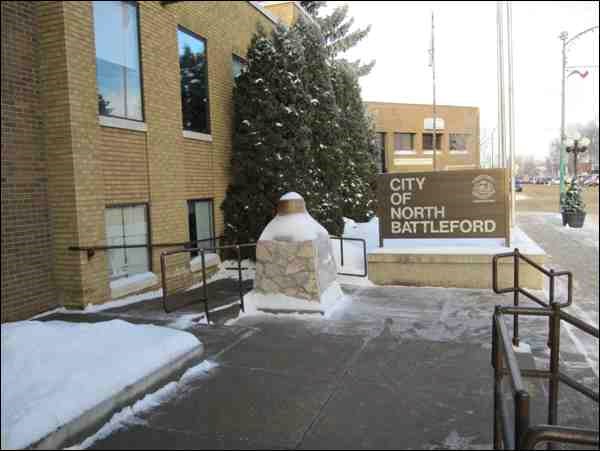It was a year of change at City Hall as key members of the city administration moved out of and in to North Battleford.
Moving on in May was City Manager Jim Puffalt. After four years in North Battleford, Puffalt was hired on to be city manager in Moose Jaw.
The search for a full-time replacement lasted well into the summer, until finally Randy Patrick was hired as the new city manager. His previous experience includes time in Chestermere, Alta., and Thompson, Man.
There was change in other key positions. Director of Finance Amarjit Mahil left for a new opportunity and Steve Brown, formerly with the City of Prince Albert, was hired on to replace him.
As well, Cheryl DeNeire was hired on as the new Director of Leisure Services, replacing Bill Samborski. Samborski retired in 2018 after serving for some 25 years with the City of North Battleford.
The city saw other staff changes including some new additions: people on work experience placements from Battlefords Agency Tribal Chiefs. It was their Joint Indigenous Employment Strategy, part of the ongoing Community Economic Development Initiative between BATC and the city.
Overall it was an interesting year for Mayor Ryan Bater and the city council, one much calmer than the year before as council was spared the upheaval caused by provincial budget cuts the year before.
The biggest item on the agenda in 2018 was preparing for the coming federal legalization of cannabis.
Council went ahead with zoning bylaw amendments in preparation for the arrival of two retail cannabis outlets selected through the lottery by Saskatchewan Liquor and Gaming Authority.
Among the zoning bylaw changes were provisions allowing cannabis retail outlets as a discretionary use in the C1 Downtown Commercial, the C3 Arterial Commercial, the C3A Large Lot Arterial Commercial and C4 Regional Commercial Districts. Minimum separation distances were set to prevent cannabis retailers from opening up to 225 metres from schools, libraries, recreation facilities and public parks in the city.
The bylaw also allowed cannabis production facilities as a permitted use in the M2 heavy industrial zone.
The preparations for the arrival of retail cannabis took several months, with surveys as well as a public hearing and an open house taking place.
Final passage of the bylaw amendments took place in June. Later on that year, the discretionary use applications were approved for the two retail cannabis outlets, both of which planned locations in the city’s “Yellow Sky” neighbourhood.
Yellow Sky was just one of several neighbourhoods unveiled in 2018 as the city finally rolled out its formalized neighbourhoods initiative.
The southeast was also a focus of the development of a master plan for that area. The “Yellow Sky Master Plan,” which called for 12 phases of development for that area, was presented and approved at council in the fall.
The year 2018 also saw big developments come to the city. In June the city council authorized city administration to sell the remaining portion of Parcel E at 114th Street and Territorial Drive to a numbered company, for the new Holiday Inn build at that location.
There were some wide-ranging changes to parking in 2018 as council brought in traffic bylaw amendments in July impacting the downtown. The main change was that more parking areas both on and off the street would see two-hour time limits, enforced by the city’s community safety officers.
Finally, a major event took place on June 21 as the Treaty 6 flag was raised to its new permanent spot in front of City Hall.



